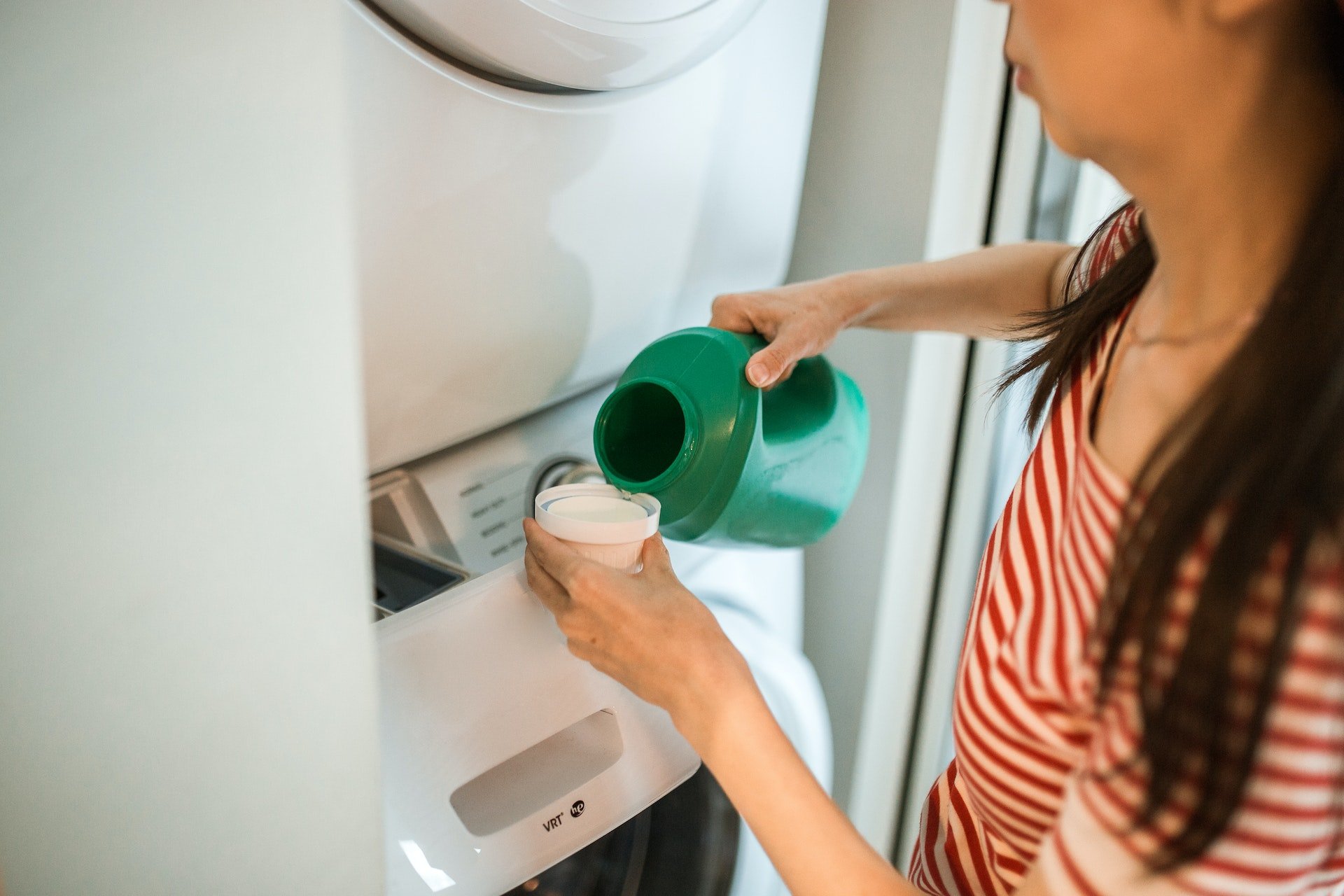
A Guide to Biodegradable Laundry Detergent
What Makes a Sustainable Detergent
January 10, 2024
3 minutes
Home Care
By Sierra Cotton
Download Free Home Care GuideA Guide to Biodegradable Laundry Detergent
While doing a load of laundry, most people have their minds on the clothes, but what happens to the wastewater? The detergents we add to the water are released and go down the drain into the environment. These detergents can contain persistent chemicals that contaminate water sources.
Many of today’s consumers are turning to biodegradable laundry detergent brands for peace of mind. A message on the jug or the box that a detergent is “green” or “eco-friendly” can be a powerful influencer on the shelf, but it’s important to be careful about the specific wording of these claims.
What Does Biodegradable Mean?
“Biodegradable” means that under the right conditions and in the right environment, a chemical process allows the materials in the detergent to be broken down by microorganisms and converted back into natural substances (such as CO2, biomass, or water). The conditions needed may include, for example, the common trio of sunlight, moisture, and exposure to oxygen. Furthermore, biodegradability is typically measured following standards like the OECD 301-311.
Some biodegradable materials degrade readily and quickly, with lenient conditions. A piece of fruit is a perfect example. There’s little you can do to prevent it from biodegrading if it’s exposed to the natural environment. Unlike fruit though, other materials may need a more specific or narrow set of conditions to degrade.
Many detergent polymer options that do technically break down over long periods of time cannot do so in a reasonable timeframe or without leaving persistent residues behind — and thus are not truly “biodegradable.”
The Danger of Chemicals That Do Not Biodegrade
When chemicals are very slow to break down (or do not break down at all), they can remain and accumulate in the environment, causing unknown ecological and health impacts for plants, animals, and water bodies.
Even long-lasting chemicals in your detergent may gradually break down over time, but this isn’t the same as a biodegradable ingredient. It can mean that tiny residues will remain for the long haul, entering our water, soil, food, and air. Non-biodegradable chemicals that have been released into the environment are now found everywhere, from the Arctic to the Swiss Alps and the Black Sea.
What Is Biodegradable Laundry Detergent?
Biodegradable detergents are formulated as a more eco-friendly alternative to traditional options. Ingredients are selected for their ability to break down quickly and harmlessly in the environment, protecting our water sources and our health.
Ingredients such as polyaspartate — found in the biodegradable Soltellus™ Polymer formulation— are ideal for formulating a biodegradable detergent. This polymer is formed from a simple chain of amino acids (aspartic acid, in this case) that will biodegrade in the environment but give multi-functional stain-fighting power to your detergent. Polyaspartate acts as a dispersant, a chelant, and a water softener, among other benefits. With a potent team player like polyaspartate, you can streamline your formulation and craft a more biodegradable laundry detergent.
Biodegradability is also crucial for a septic-safe laundry detergent as it ensures that the detergent breaks down naturally in the septic system, preventing build up.
Lygos Knows How to Make Biodegradable Laundry Detergent
We’re ready to assist with your biodegradable detergent formulation and product development. Get in touch with us to combine our world-class application knowledge, best-in-class chemistry, and strategic partnerships, accelerating your commercial development. We’re currently offering biodegradable polymer options for automatic dishwashers, laundry, and cleaners with a dedicated path to biobased.